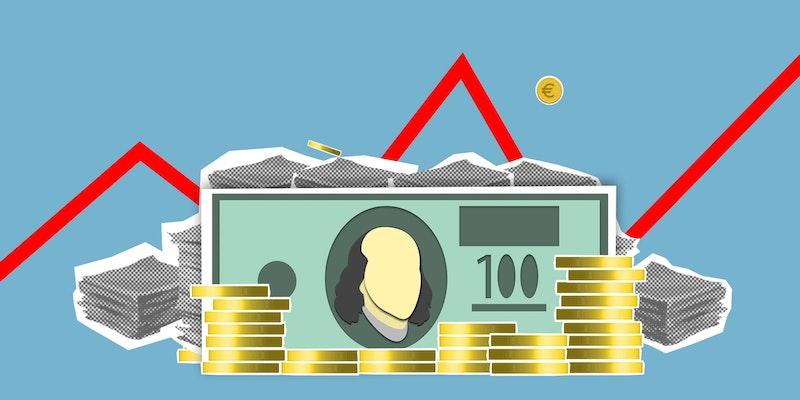Categories of Stocks: An Overview
Triston Martin
Oct 23, 2023
By investing in stocks, you can increase your wealth. Many stock options exist for investors, each with its qualities. We'll explain the many sorts of stocks to help you choose one for your financial strategy.
Common Stocks
Common stocks, or ordinary shares, are firm ownership shares. When you acquire these stocks, you own part of the firm and get a piece of its profits. The corporation may share these gains as dividends or reinvested.
A significant characteristic of common stocks is voting on business decisions. Stockholders elect directors and voice corporate viewpoints. A catch exists, though. Every day, investors receive the most minor assets after debtors and preferred stockholders in the case of corporate bankruptcy or dissolution.
A common stock type of account is what many investors first think of when considering stocks. These stocks typically get the most media attention and are the stocks of major companies traded on significant stock exchanges.
Preferred Stocks
In contrast to common stocks, preferred stocks come with a higher claim on dividends and assets. These stocks entitle investors to receive dividend payments before common stockholders. If a company has a good year and decides to pay dividends, preferred stockholders will receive their dividends first.
However, preferred stock has a limitation: no voting rights. So, while these stockholders might have a steadier income stream, they don't have as much say in company decisions.
An example to consider is Alphabet Inc., the parent company of Google. They have both Class A common stocks (GOOGL) and preferred Class C stocks (GOOG) available to investors.
Growth Stocks and Value Stocks
Growth stocks belong to companies expected to expand rapidly in the future. In a strong economy or low-interest rates, these equities may outperform. Technology businesses like Apple and Amazon have recently delivered high returns to investors. Follow themed funds like SPDR Portfolio S&P 500 Growth ETF to track these stocks.
Value stocks stand in contrast. These stocks are generally undervalued. Value stocks represent healthcare, energy, and finance companies. These companies will likely perform well in an economic recovery since they often provide steady income streams. To monitor value stocks, consider adding the SPDR Portfolio S & P 500 Value ETF (SPYV) to their investment list.
Income Stocks

When discussing different types of stocks, income stocks hold a particular interest for many, standing out amidst the types of stock options available. They're a popular choice, much like a common stock type of account, for those prioritizing a steady income stream from their investments. Owning these stocks means you essentially receive a portion of a company’s profits. Here’s a closer look at what makes this particular type of stock account appealing to investors.
Income stocks are an investor's gateway to consistent dividend payouts. Companies that offer such stocks often distribute a hefty portion of their profits or any surplus cash they might have in reserves. These dividends are usually higher than what you’d see with the average stock in the market. It's a way for companies to reward and keep their shareholders engaged.
For instance, utility companies are often associated with income stocks. Given the nature of their business, these companies have consistent cash flows, allowing them to offer attractive dividends. If you're searching for these stocks, exploring funds can be beneficial. One such fund is the Amplify High Income ETF (YYY).
Blue-Chip Stocks
Blue-chip stocks are the towering skyscrapers in the vast landscape of different types of stocks. They belong to the heavyweights of the business industry. Companies like Microsoft, McDonald's, and Exxon Mobil proudly wear the blue-chip badge. But what exactly sets them apart?
Blue-chip stocks are shares in well-established companies with a strong track record. These corporations frequently lead their industries and have a significant market share. Conservative investors favor them for their stable earnings and strong business structures. Blue-chip equities are popular safe havens during market volatility and economic uncertainty.
Cyclical and Non-Cyclical Stocks
Differentiating between cyclical and non-cyclical stocks is crucial for anyone aiming to strategize their investments based on economic patterns. Each type responds distinctly to the ebb and flow of the economy.
Cyclical stocks, as the name suggests, move in cycles. Their performance is intricately linked to how the economy is doing. In flourishing economic times, these stocks tend to soar. They ride the wave of consumer confidence, often leading to increased spending.
However, in an economic downturn, these stocks can see a decline. A prime example of a cyclical stock is Apple. Another major player in this category is Nike. For those keen on exploring more of such stocks, the Vanguard Consumer Discretionary ETF (VCR) is a noteworthy mention.
Defensive Stocks
Seeking stability in your investments? Defensive stocks can be your anchor. These stocks are resilient warriors born from indispensable sectors like healthcare, utilities, and essential consumer goods. Even when the stock market throws a tantrum, defensive stocks remain calm, offering steady returns.
Take companies like Verizon and Cardinal Health. Their performance isn’t a roller-coaster ride but a steady march, a testament to their defensive nature. If you're keen to explore, the Invesco Defensive Equity ETF (DEF) offers a curated selection of these steady performers.
IPO Stocks
An Initial Public Offering (IPO) introduces a company to the public market. From private to public is a significant milestone. This transition from private to public is an important milestone. Companies often offer IPO stocks at a more enticing price and an ‘early bird’ offer before they start trading openly on the stock exchange. But where do you get information on which company is taking this giant leap? The Nasdaq website is the go-to spot for such intel.
Penny Stocks

If the stock market were a shopping arena, penny stocks would be the clearance section. Priced under $5, they're the low-priced items of the stock world. But, much like discounted items, they come with risks. Some of these stocks trade on major exchanges, but a significant portion finds its home in the OTCQB – a U.S. stock platform run by the OTC Markets Group. The iShares Micro-Cap ETF (IWC) is a handy tool for those who want a snapshot of these budget stocks.
ESG Stocks
Many are listening to their head and heart in today's investment landscape. ESG stocks answer this call. Representing companies that prioritize Environmental, Social, and Corporate Governance values, these stocks are about more than just profits. They're about responsibility and sustainability. The Vanguard ESG U.S. Stock ETF (ESGV) platform showcases such responsible players.







